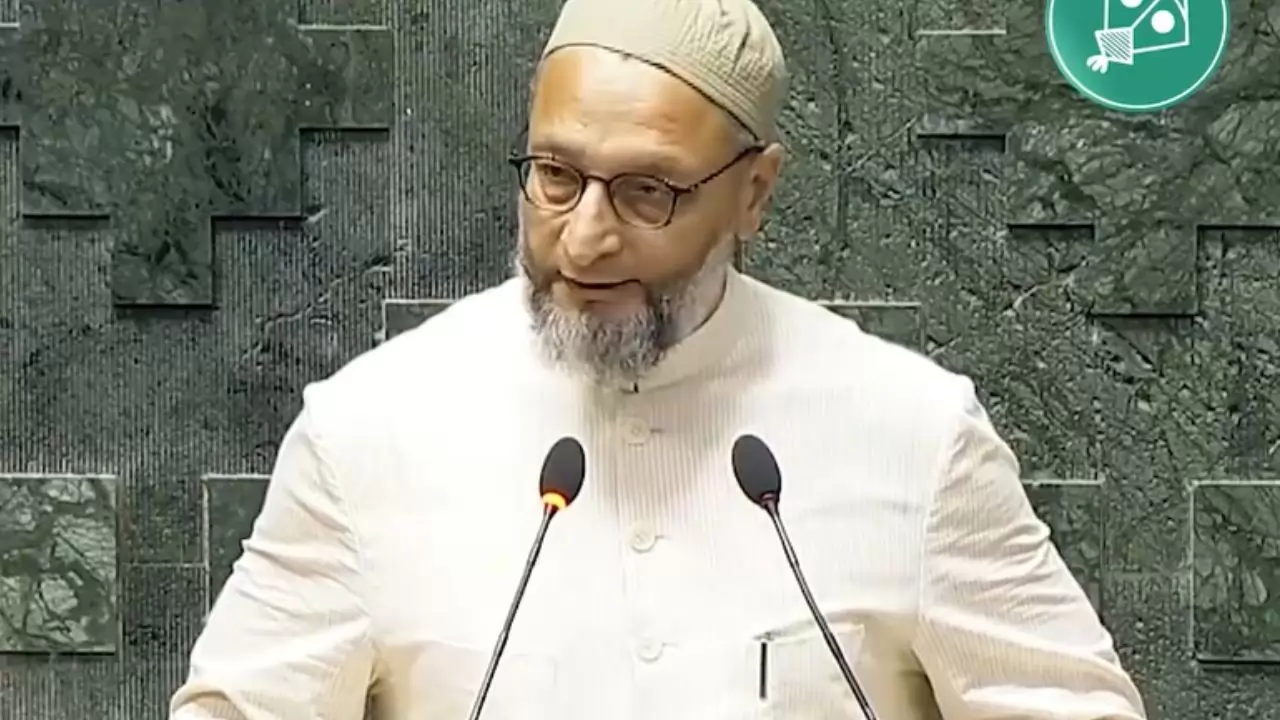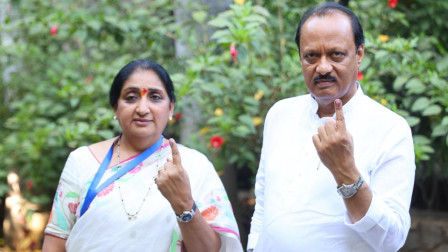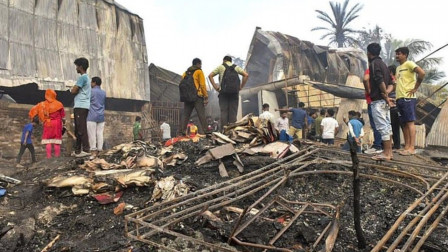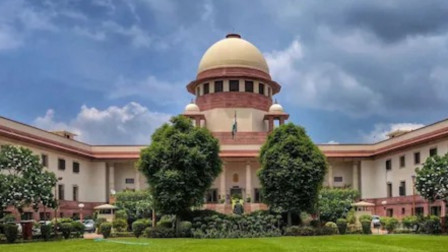
Asaduddin Owaisi (X/aimim_national)
Rajasthan News: A row has erupted over the Rajasthan court’s decision to admit a petition claiming that the Ajmer Sharif dargah was built over a Shiva temple. In response to this, Asaduddin Owaisi, the leader of the AIMIM and Member of Parliament, has expressed his concerns regarding the implications of such claims. Owaisi highlighted that the dargah has a history of over 800 years, having been established during the reign of Alauddin Khalji. Referring to historical records, he pointed out that the dargah is mentioned in Amir Khusro’s book from the 13th century. Owaisi questioned the validity of these claims, asking, "What will remain if such a significant and long-standing site is disputed now?"
The Dargah’s Historical and Cultural Significance
The AIMIM leader also stressed the importance of the Ajmer Sharif dargah in India's religious and cultural fabric. He mentioned that an official delegation from two neighboring countries visits the dargah annually, underscoring its international significance. Additionally, every Indian Prime Minister has sent a chadar to the dargah. Owaisi expressed his concern about the broader consequences of such petitions, questioning where this trend might stop. He posed the possibility that if people from other religious communities, such as Jains and Buddhists, were to go to court claiming certain sites as their religious places, it could create a domino effect of similar legal battles. He wondered what the outcome of such a scenario would be, and warned that it could cause greater division in the country.
Court’s Involvement and Hindu Sena’s Petition
The petition, filed by the right-wing group Hindu Sena, has been admitted by the Ajmer court. In response to the petition, the court has asked for feedback from the Archaeological Survey of India (ASI), the Dargah committee, and the Union Ministry of Minority Affairs. This step has added a legal dimension to the ongoing controversy, with Owaisi and others expressing concerns about the political motivations behind such legal proceedings.
Owaisi Criticizes BJP and RSS Leadership
Owaisi criticized the Bharatiya Janata Party (BJP) and the Rashtriya Swayamsevak Sangh (RSS) for their involvement in the controversy. He pointed out the contradiction in the Modi government’s position, as the same government has been sending chadars to the dargah over the years. He questioned how the government would respond to the petition, noting that Prime Minister Narendra Modi has sent 10 chadars over the past decade. Owaisi urged the BJP and RSS to stop this kind of divisive rhetoric, stating that it was not in the best interest of the country.
Criticism of Political Climate
In a moment of wit, Owaisi took a playful jab at the ongoing debates around artificial intelligence (AI), suggesting that instead of discussing AI, the focus should shift to the Archaeological Survey of India (ASI), as the situation seemed to revolve around constant excavation and reinterpretation of historical sites. He humorously remarked, "Don’t talk about artificial intelligence; just keep doing ASI, ASI, and just keep digging."
He made a pointed criticism about the political climate, referencing the fact that old structures and monuments could also be found beneath the homes of certain BJP leaders in Delhi. Owaisi argued that such efforts to undermine the historical significance of important religious sites were weakening the country. He expressed frustration that the nation was being distracted by these issues while other pressing concerns, such as unemployment, rising prices, farmer distress, and growing Chinese influence, remained unaddressed.
Concerns About the Larger Legal Context
Reflecting on broader legal trends, Owaisi also recalled his warnings following the Babri Masjid-Ram Janmabhoomi judgment. He believed that such legal challenges would become more frequent if left unchecked. He pointed to remarks made by former Chief Justice of India, DY Chandrachud, during the Gyanvapi case hearing. Chandrachud had said that the 1991 Places of Worship Act did not prohibit determining the religious character of a site, only its conversion. Owaisi claimed that this legal interpretation was problematic and that it had encouraged the rise of similar petitions across the country.
The 1991 Places of Worship Act prohibits the conversion of any place of worship and mandates the preservation of its religious character as it stood on August 15, 1947. Owaisi’s comments reflect his concern that the government and judiciary should safeguard the integrity of this Act to prevent religious and historical sites from becoming subjects of endless litigation.








Copyright © 2026 Top Indian News
